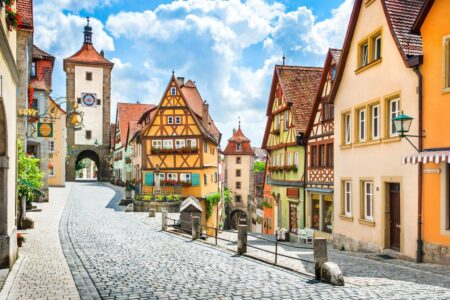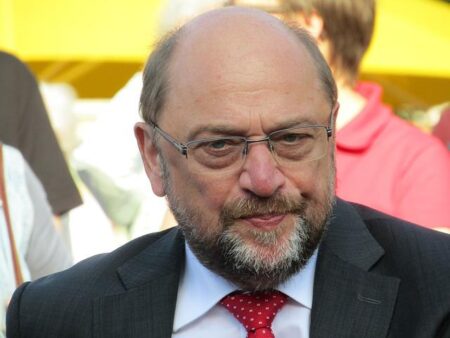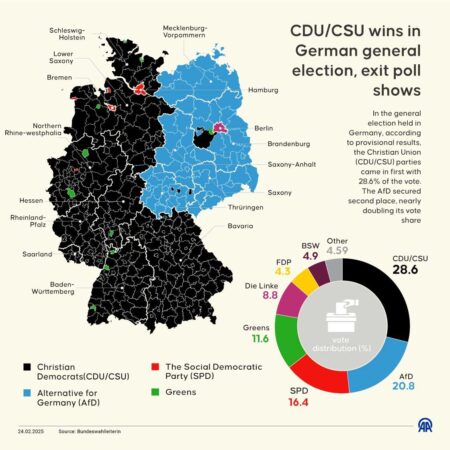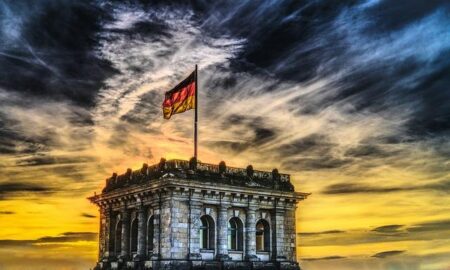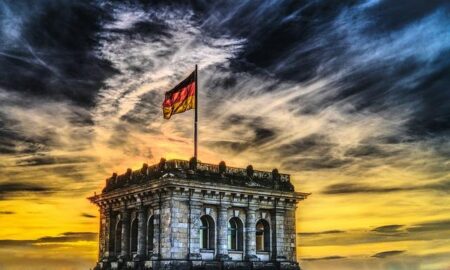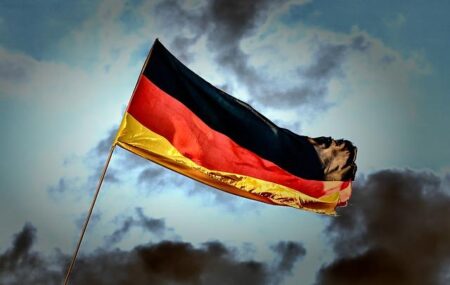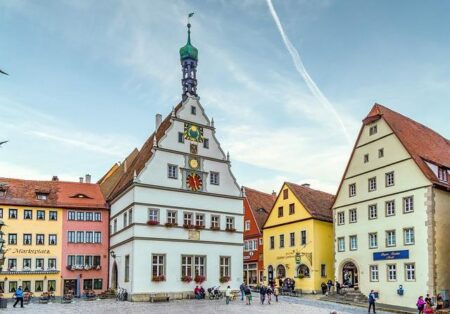As Germany’s political landscape shifts rightward, experts from the Atlantic Council analyze the implications of the recent election results. They delve into how this trend could reshape Germany’s domestic policies and its role in the European Union.
Browsing: democracy
Germany’s upcoming election promises to significantly influence Europe’s stance toward a more assertive Trump administration. As voters head to the polls on Sunday, the future of key policies on transatlantic relations and global cooperation hangs in the balance.
Germany’s far-right party, AfD, has doubled its vote share in recent elections, signaling a significant shift in the country’s political landscape. This surge raises concerns about the influence of extremism and poses challenges for traditional parties in maintaining stability.
Former Brazilian President Jair Bolsonaro faces charges of plotting a coup against the government. Authorities allege he incited unrest following his electoral defeat. This development raises concerns about the stability of Brazil’s democratic institutions.
In today’s authoritarian India, finding freedom requires resilience and creativity. Activists harness technology to mobilize grassroots support and challenge oppressive policies. Community solidarity and art as resistance serve as vital tools in the pursuit of liberty.
In the wake of Germany’s recent elections, the CDU/CSU and SPD are set to commence preliminary talks aimed at forming a potential coalition government. These discussions mark a crucial step in shaping the country’s political landscape following a tightly contested vote.
Following his election victory, Friedrich Merz faces the challenge of uniting Germany’s fractured political landscape while asserting strong leadership in Europe. Analysts at Chatham House examine whether he can navigate these demanding responsibilities effectively.
Germany’s recent election signals a significant shift in its political landscape, with major implications for the EU. Key takeaways include a coalition government that emphasizes climate action and social reforms, potentially altering Germany’s leadership role in Europe.
In the wake of shifting geopolitical dynamics, several books explore the complex relationship between Russia, Ukraine, and the global order during Donald Trump’s presidency. These texts provide crucial insights into diplomacy, conflict, and power shifts in an evolving landscape.
The recent German election has exposed deep-seated divisions within the country, as parties grapple with issues like immigration and climate policy. Analysts warn that these rifts could redefine German politics and challenge coalition stability moving forward.
Brazil’s former President Jair Bolsonaro has been charged in connection with an alleged coup plot following the January 8 attacks on government buildings in Brasília. Authorities are investigating his role in inciting the violence, raising concerns over political stability.
Former U.S. President Donald Trump’s remark about allocating “$21 million for voter turnout” has ignited a political controversy in India. Critics allege inappropriate foreign influence on Indian elections, while supporters claim it reflects global interest in democracy.
In the latest polls ahead of Germany’s elections, CDU leader Friedrich Merz appears poised to become the next chancellor. Meanwhile, the far-right AfD is experiencing a notable surge, raising concerns about its potential influence on German politics.
In a significant shift, German conservatives emerged victorious in the latest elections, securing a decisive lead. Meanwhile, the far-right Alternative for Germany (AfD) achieved its best electoral performance to date, marking a notable rise in its influence.
In a significant political shift, Germany’s Friedrich Merz declared victory for his conservative party as exit polls indicated substantial gains for far-right factions. This outcome reflects a changing electoral landscape and raises questions about future governance.
Former Brazilian President Jair Bolsonaro faces charges of attempted coup following the January 8 riots in Brasília, where protesters stormed government buildings. Authorities allege his role in inciting the unrest poses a serious threat to democracy in Brazil.
In a significant electoral shift, German conservatives celebrated a substantial victory, while the far-right party achieved historic success. This outcome reflects growing support for nationalist sentiments, reshaping Germany’s political landscape.
Germany’s conservative party has secured victory in the latest elections, while the far-right Alternative for Germany (AfD) has surged to second place, according to exit polls. This shift signals a significant change in the nation’s political landscape.
Brazilian prosecutors have charged former President Jair Bolsonaro with inciting an alleged coup plot following the January riots at the Capitol in Brasília. The charges underscore ongoing tensions in Brazil’s political landscape amid investigations into the unrest.
Polls have opened in Germany for a pivotal election that is being closely monitored by European leaders and the US. With issues like economic stability and climate policy at stake, the outcome could significantly influence the continent’s future trajectory.


